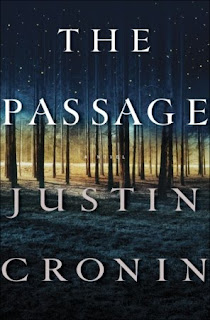Prepare to be dazzled and intimidated by my technical prowess; aided and abetted by decades of hard-won experience in the trenches of the business community, where I applied the Sun Tzu principles of zheng and qi to vanquish my white-collar foes with extreme prejudice, trampling upon the headstones of any competitive enterprise in cold fury.
Or not.
I don’t know much, but I know I love you. And that’s why I’m writing this. And also just to try to get that fetchingly irritating pop ditty in your head for the next hour or so. I am, contrary to Google’s company ethos, sometimes evil.
Look, it’s simple. A marketing plan is just a statement, a road map, if you will, of how you plan to bring your competitive product or service to market in a way that will benefit you, the evil mastermind, the most. After all, that’s what capitalism is. And it’s one of the most important documents you can have in your portfolio, along with your business plan. You do have one of those, too, right?
A good marketing plan is going to state a few things: descriptions of your target market, competitors, and the product or service you offer; an outline of your marketing budget and pricing strategy; and analyses of your sales, market share, expenses, and company financials. It will also document what history your enterprise has racked up, i.e., what’s already been tried and what worked and what failed. Most importantly, it should articulate what strategy you may have going forward.
Last week I wrote a wee bit on the publishing industry and gave you my take on where I think it’s headed by emphasizing certain areas of opportunity for the indie writer. A good indie writer ideally is able to be a one-man operation when necessary, but he is always surrounded by top-notch people who advise him, and whom he advises in turn. You can’t do this alone, in other words.
I can’t overemphasize the importance of technology, folks. eBooks are pushing writers and the industry that surrounds our activities like nothing since the printing press. Seriously. Be sure, when you write up your plan, that you account for eBooks. I’m not going to be too specific here, but when it comes to sound business, a good businessman looks for ways to lower his costs—called overhead—however he can. Well, if an indie author goes to print, more than likely he’s going to go POD or print on demand because he’s only printing what he’s already sold. And while that may sound like a great idea, for most authors out there it’s simply too expensive, and most of you are doing it backwards. Unless you’re in a niche market like cookbooks or glossy coffee table full color photography hardbacks, you might want to consider eschewing print altogether. I’ll say it like this: I believe, in the next couple of years, eBooks will become the new standard for mass market fiction. eReaders will be even cheaper and better, the free market will sort out the chaff, and Borders will be out of business. Oops. Looks like they’re already having trouble.
I’m over my limit here. Writers, Google is your friend (even though they're evil most of the time): search the terms of this blog and you’ll find more than you need to write up a solid marketing plan. Have an advisor look it over; even your local banker. Why not? Anyway, if a writer can write “tightly wound plots” and “compelling twists,” and is having trouble coming up with a marketing plan, I don’t offer him much hope for success. Just sayin’.










